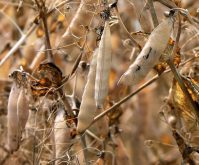Canada’s pork industry is trying to track down the source of the ractopamine contamination that has caused China to ban pork imports from one Olymel plant.
So far only the one Olymel plant in Quebec has been delisted as an approved supplier to China and its managers are scrambling to find out how some of the pork hocks it shipped ended up testing positive for the China-banned substance.
“Their response is very measured and appropriate,” said Gary Stordy, Canadian Pork Council spokesperson on May 31.
It is unknown whether the pigs with the ractopamine affected meat came from one farm only, how the meat came to be affected by the substance and how much was found in the meat.
Read Also

Farming Smarter receives financial boost from Alberta government for potato research
Farming Smarter near Lethbridge got a boost to its research equipment, thanks to the Alberta government’s increase in funding for research associations.
Ractopamine is a feed additive that allows pigs to turn feed into a higher proportion of meat versus fat. It has been approved by Canadian, U.S. and other human health regulators, but is banned by some countries, including China and those of the European Union.
Canada created a ractopamine-free pork production system, involving certification, inspection and testing in response to the demands of countries like China and Russia and so far it has allowed China to buy Canadian pork with confidence.
The Olymel Plant is in Vallee Jonction, Que., and Stordy said it appears that the meat it shipped all came from its own processing, rather than being a combination of products from a number of plants combined before exporting. That should make the traceback to the source easier.
Stordy said the plant does its own ractopamine testing and has paperwork for all of its pigs and pork.
Quebec was an early adopter of the ractopamine-free production system, so it is surprising that pork from that industry has been found tainted with the substance, Stordy said.
“It’s one reason it’s a concern,” he said.
China is now likely to increase its ractopamine testing of Canadian pork and Canada wants to reassure China, Stordy said.
“We want to know … how we can improve that,” said Stordy.
Canada has not been caught exporting tainted pork to China since 2015, when the substance was still around in some feed.
American farmers still often use the product, making U.S. pork exports to China much less robust than Canada’s, which have been booming.
The Chinese government, the Canadian embassy in China and the Canadian Food Inspection Agency are discussing the issue.
Contact ed.white@producer.com


















